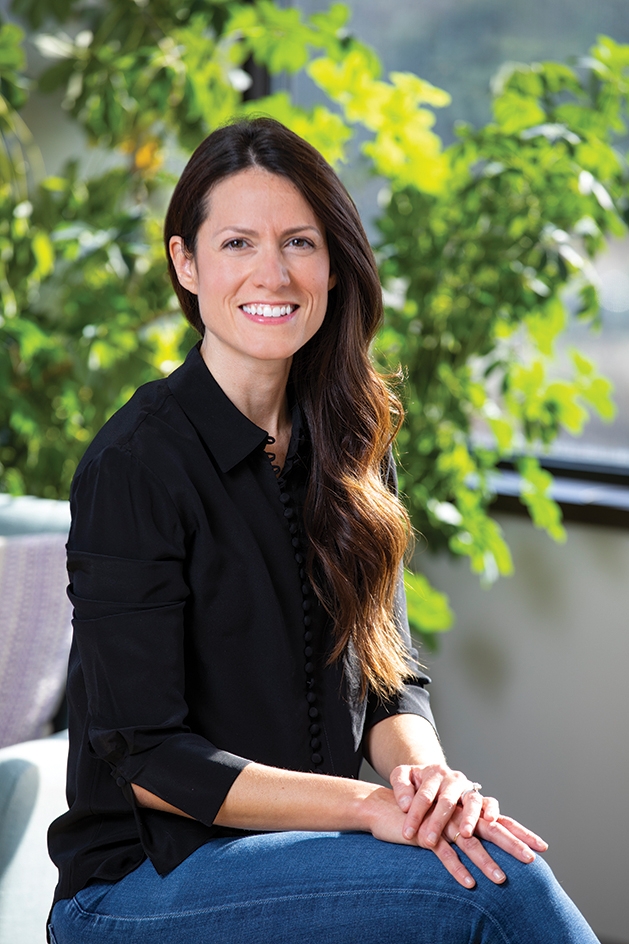
When I discovered the insightful and positive Instagram posts of locally based Center for Collaborative Health (CCH), I reached out, wanting to learn more about their work. CCH consists of a multi-disciplinary team of experts seeking to provide a holistic approach to mental health. Co-founder Macarena Corral, PsyD, LP, RYT, is a clinical psychologist who believes achieving and maintaining good mental health is about more than talking about what’s going on in your life, or about trauma, with an expectation that those talks will make everything “magically” better. By providing access to experts in things like sleep issues, yoga, acupuncture, nutrition and trauma sensitive strength training, alongside the clinic’s five therapists, Corral believes positive outcomes can be quicker and longer lasting. The CCH website states a core belief that people are resilient and just need some extra support and new skills to live healthier lives. Some of that positive support can be found in CCH’s Instagram posts, which Corral writes. But, I wanted to dive deeper …
I asked Corral to describe the current state of community mental health. She says, “The pandemic revealed that some people had developed certain coping strategies that became impossible to access as well as a population with no coping skills who were reacting to life and found [the current situation] to be too much stress and now don’t have a way to manage … Now, many have realized life is short and they need to make changes.”
Corral notes anxiety has been at an all-time high with many people experiencing an existential “mid-life” crisis of sorts, wondering, "What is my life? What changes can I make to live my life to the fullest?" This was unsurprising to me, but I did wonder, "How does one determine a baseline for good mental health?" Corral says, “It depends on the person, how that person is functioning. A person might have symptoms but are functioning and need only some support. A clinical diagnosis depends on someone’s ability to function, go to work get out of bed or care for their kids, etc.”
I asked about mental health distress signals parents of young adults should be attentive to. Overall, Corral suggests watching for isolation, not wanting to talk or be present with the family unit, or any significant changes in mood. She adds, “In adolescence, depression shows up as anger or irritability.”
With pandemic restrictions loosening, Corral sees some re-integration anxiety, even in the most extraverted people. She says, “You may have changed your behavior, and even though you’re vaccinated, you’re still anxious to take off your mask in a restaurant.” She notes children may also experience some anxiety about re-entering life. “Parents can model how they’re managing and help ease family members back into society in a safe way,” says Corral, adding, “Now that we and our friends have been vaccinated, if asked, ‘Can we hug?’ The answer is, ‘yes.’”
Finally, I asked Corral about resiliency as it relates to what’s typical and normal and what requires intervention. Basically, when does someone need help? Corral says, “Most people are going to be fine. Time and function are the keys. There will be times you feel down for a few days. This is part of life, but if it continues, that’s when I would say maybe it’s time for you to talk to someone. Is it changing your relationships or how you feel about yourself or how you function at work?”
All this leads back to Corral’s initial inspiration for CCH, how she wondered, "Wouldn’t it be great if people already had some skills to be able to respond to stress, like a type of preventative approach to good mental health?" That’s the approach at CCH where clients might be asked, “Are you eating in a way that supports good mental health? If you want to be on supplements, are you on the right ones? Are you moving? Or do you live a sedentary life?” Corral thinks integrating positive changes in a supportive environment can be beneficial for many people. And with the recent growth of teletherapy, Corral says, “Access to mental health support is better than it was before.”









